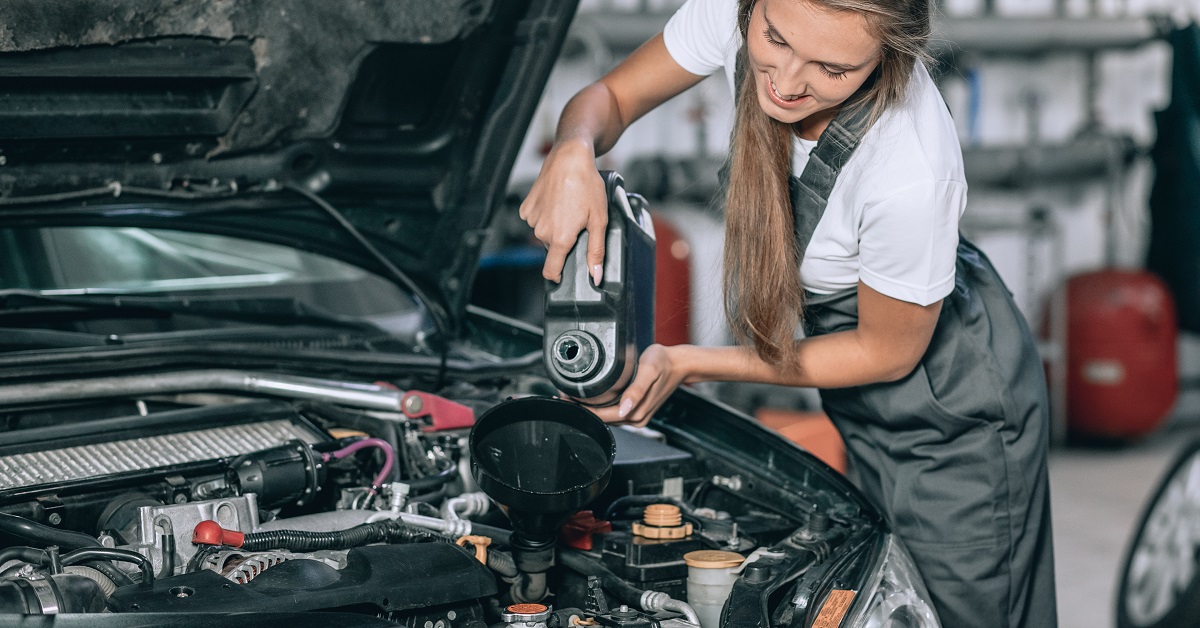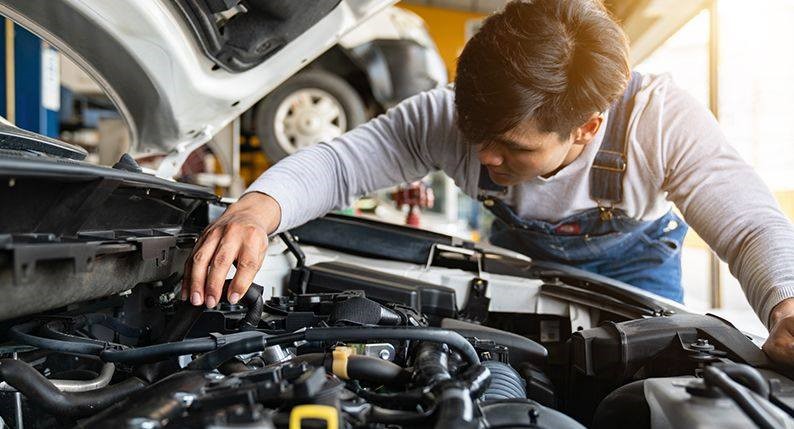All Categories
Featured
When it concerns preserving an automobile, comprehending the differences in between regular upkeep and fixings is crucial for vehicle proprietors. Both aspects are essential for the long life and dependability of your car, but they serve distinct purposes and are managed in a different way. By recognizing when to perform routine maintenance versus when to address repairs, you can maintain your lorry running smoothly and stay clear of costly surprises.
![]()
Routine Upkeep: Prevention is Trick. Routine upkeep entails the normal, preventive care that your car needs to prevent future problems. It is normally set up at certain intervals, such as every 3,000 or 5,000 miles, based on your car's manual or maker recommendations. Regular upkeep helps make sure that your car remains in ideal problem, stopping wear and tear from creating major issues down the line.
Some common instances of regular maintenance include:
Oil Modifications: Regular oil modifications are crucial to maintain your engine oiled and running efficiently. Oil helps in reducing rubbing between engine parts, preventing overheating and unnecessary wear. Tire Upkeep: This consists of tire turnings, balancing, and examining tire pressure. Proper tire maintenance ensures better gas performance, managing, and tire durability. Brake Inspections: Regular look at your brakes, consisting of pads and liquid degrees, can capture any type of possible issues early, avoiding brake failure and making certain safety and security. Liquid Checks and Top-Ups: Guaranteeing your cars and truck has the ideal degrees of coolant, transmission fluid, power guiding fluid, and brake fluid is essential for general vehicle wellness. Air Filter Substitute: Changing the air filter ensures that your engine obtains clean air, which aids it run much more successfully and minimizes engine strain. Regular maintenance is typically scheduled and doesn't entail repairing any kind of broken parts-- it's about keeping whatever in great working order and avoiding future malfunctions.
Repair Works: Repairing the Unforeseen. Repair services, on the other hand, are essential when something goes wrong with your car. Repairs attend to problems that influence the auto's performance or safety and require to be fixed immediately. Unlike maintenance, which is preventative, repair work generally take place when components have actually worn, fell short, or malfunctioned.
Examples of common repair services consist of:
Transmission Issues: If your vehicle is having problem shifting equipments or experiences sliding, the transmission might require fixings or substitute. Engine Failing: If your engine begins misfiring, overheating, or stalling, it may require significant fixings or substitute of components like the timing belt, pistons, or seals. Brake Fixes: While brake pads belong to regular maintenance, if your brakes are making a grinding noise or are no more working correctly, brake repairs will certainly be required, such as changing the calipers or the blades. Battery Replacement: If your automobile will not begin or the battery is no longer holding a fee, you'll require a replacement battery, which is a repair service. Suspension and Guiding Repair Services: Problems with the suspension or steering system-- such as trouble guiding or a rough trip-- can be indications that parts like struts or shock absorbers require repair. Repairs are usually more expensive and immediate than regular upkeep. They are called for when something breaks or breakdowns, which can influence the vehicle's performance and safety and security.
Trick Differences Between Routine Repair And Maintenance. Timing: Regular maintenance is precautionary and performed at set up intervals, while fixings are reactive and occur when something fails. Cost: Maintenance is usually much less expensive, as it entails checking and changing smaller components or liquids. Repair work, especially significant ones, have a tendency to be extra pricey as a result of the intricacy of repairing busted or malfunctioning elements. Objective: The goal of maintenance is to keep your automobile running well and avoid troubles. Fixings, on the various other hand, are needed to fix concerns that have currently taken place. Frequency: Routine upkeep occurs consistently at established intervals (e.g., every 5,000 miles), while fixings are less predictable, typically occurring when components wear or fail out unexpectedly. Why Both are essential. Both routine repair and maintenance are necessary for the long-term wellness of your car. Regular upkeep aids keep your auto running smoothly and can stop numerous typical concerns from creating in the initial location. By remaining on top of scheduled services, you can attend to little problems before they turn right into pricey repairs.
![]()
However, repair work are sometimes inescapable. Despite having the ideal maintenance, parts break over time, and unforeseen issues can occur. When repairs are required, addressing them quickly can stop further damages and guarantee your car's security and dependability.
Final thought. In summary, recognizing the distinction in between routine repair and maintenance helps you take the appropriate steps to take care of your auto. Regular maintenance can conserve you cash by stopping larger issues, while repair work are necessary when something fails. By remaining aggressive with upkeep and resolving repairs when required, you can prolong the lifespan of your car and guarantee that it remains to do at its finest for years ahead.

Routine Upkeep: Prevention is Trick. Routine upkeep entails the normal, preventive care that your car needs to prevent future problems. It is normally set up at certain intervals, such as every 3,000 or 5,000 miles, based on your car's manual or maker recommendations. Regular upkeep helps make sure that your car remains in ideal problem, stopping wear and tear from creating major issues down the line.
Some common instances of regular maintenance include:
Oil Modifications: Regular oil modifications are crucial to maintain your engine oiled and running efficiently. Oil helps in reducing rubbing between engine parts, preventing overheating and unnecessary wear. Tire Upkeep: This consists of tire turnings, balancing, and examining tire pressure. Proper tire maintenance ensures better gas performance, managing, and tire durability. Brake Inspections: Regular look at your brakes, consisting of pads and liquid degrees, can capture any type of possible issues early, avoiding brake failure and making certain safety and security. Liquid Checks and Top-Ups: Guaranteeing your cars and truck has the ideal degrees of coolant, transmission fluid, power guiding fluid, and brake fluid is essential for general vehicle wellness. Air Filter Substitute: Changing the air filter ensures that your engine obtains clean air, which aids it run much more successfully and minimizes engine strain. Regular maintenance is typically scheduled and doesn't entail repairing any kind of broken parts-- it's about keeping whatever in great working order and avoiding future malfunctions.
Repair Works: Repairing the Unforeseen. Repair services, on the other hand, are essential when something goes wrong with your car. Repairs attend to problems that influence the auto's performance or safety and require to be fixed immediately. Unlike maintenance, which is preventative, repair work generally take place when components have actually worn, fell short, or malfunctioned.
Examples of common repair services consist of:
Transmission Issues: If your vehicle is having problem shifting equipments or experiences sliding, the transmission might require fixings or substitute. Engine Failing: If your engine begins misfiring, overheating, or stalling, it may require significant fixings or substitute of components like the timing belt, pistons, or seals. Brake Fixes: While brake pads belong to regular maintenance, if your brakes are making a grinding noise or are no more working correctly, brake repairs will certainly be required, such as changing the calipers or the blades. Battery Replacement: If your automobile will not begin or the battery is no longer holding a fee, you'll require a replacement battery, which is a repair service. Suspension and Guiding Repair Services: Problems with the suspension or steering system-- such as trouble guiding or a rough trip-- can be indications that parts like struts or shock absorbers require repair. Repairs are usually more expensive and immediate than regular upkeep. They are called for when something breaks or breakdowns, which can influence the vehicle's performance and safety and security.
Trick Differences Between Routine Repair And Maintenance. Timing: Regular maintenance is precautionary and performed at set up intervals, while fixings are reactive and occur when something fails. Cost: Maintenance is usually much less expensive, as it entails checking and changing smaller components or liquids. Repair work, especially significant ones, have a tendency to be extra pricey as a result of the intricacy of repairing busted or malfunctioning elements. Objective: The goal of maintenance is to keep your automobile running well and avoid troubles. Fixings, on the various other hand, are needed to fix concerns that have currently taken place. Frequency: Routine upkeep occurs consistently at established intervals (e.g., every 5,000 miles), while fixings are less predictable, typically occurring when components wear or fail out unexpectedly. Why Both are essential. Both routine repair and maintenance are necessary for the long-term wellness of your car. Regular upkeep aids keep your auto running smoothly and can stop numerous typical concerns from creating in the initial location. By remaining on top of scheduled services, you can attend to little problems before they turn right into pricey repairs.

However, repair work are sometimes inescapable. Despite having the ideal maintenance, parts break over time, and unforeseen issues can occur. When repairs are required, addressing them quickly can stop further damages and guarantee your car's security and dependability.
Final thought. In summary, recognizing the distinction in between routine repair and maintenance helps you take the appropriate steps to take care of your auto. Regular maintenance can conserve you cash by stopping larger issues, while repair work are necessary when something fails. By remaining aggressive with upkeep and resolving repairs when required, you can prolong the lifespan of your car and guarantee that it remains to do at its finest for years ahead.
Latest Posts
Durable Yard, Ranch, and Ranch Fence Solutions by Montana Fencing
Published Apr 21, 25
1 min read
Discover the Perfect Floor Tile Flooring at Carpet Interiors Floor & Home
Published Apr 21, 25
1 min read
Eco-Friendly Bath Remodels with Bath Fitter
Published Apr 21, 25
1 min read